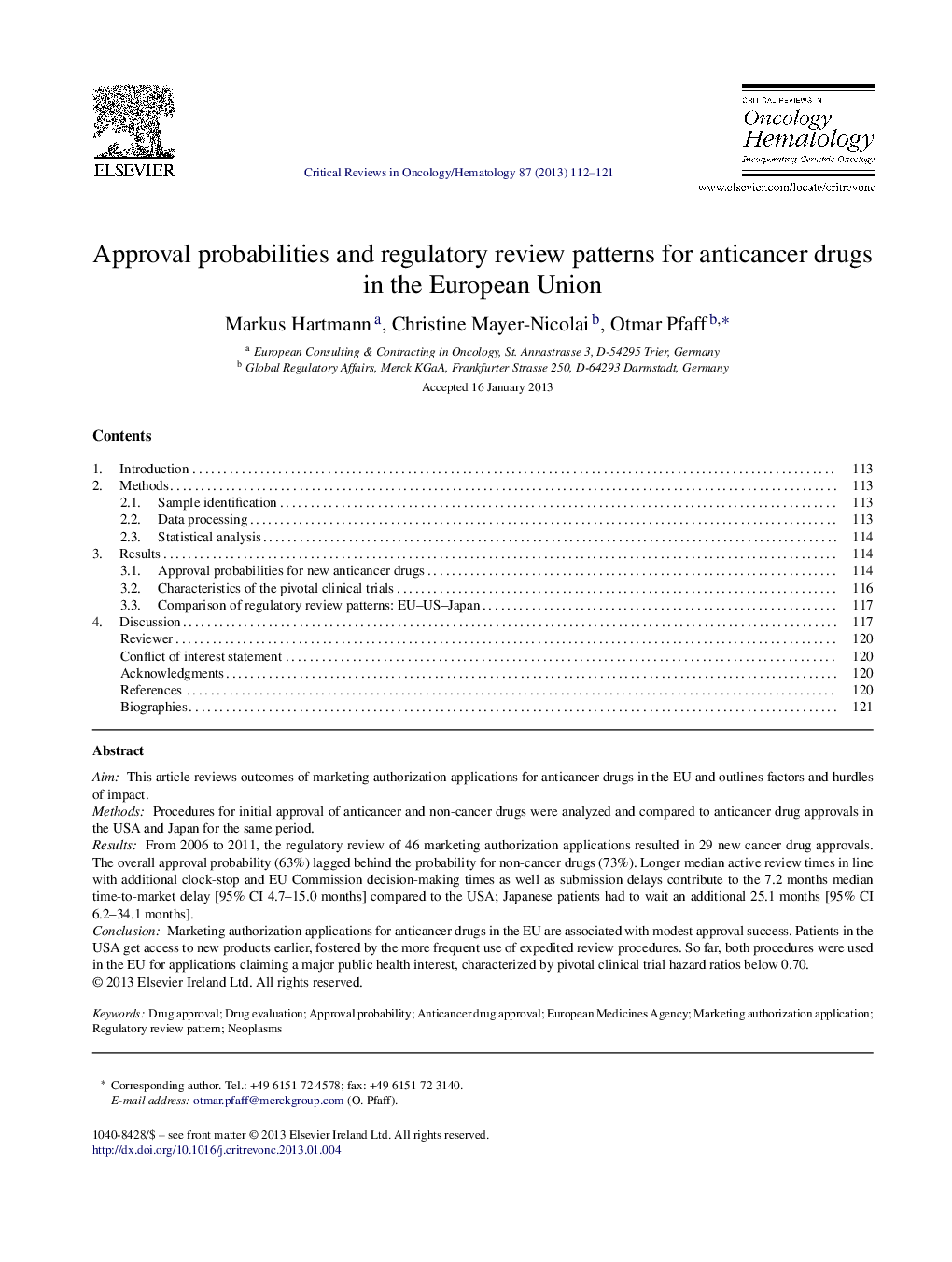| Article ID | Journal | Published Year | Pages | File Type |
|---|---|---|---|---|
| 6113696 | Critical Reviews in Oncology/Hematology | 2013 | 10 Pages |
AimThis article reviews outcomes of marketing authorization applications for anticancer drugs in the EU and outlines factors and hurdles of impact.MethodsProcedures for initial approval of anticancer and non-cancer drugs were analyzed and compared to anticancer drug approvals in the USA and Japan for the same period.ResultsFrom 2006 to 2011, the regulatory review of 46 marketing authorization applications resulted in 29 new cancer drug approvals. The overall approval probability (63%) lagged behind the probability for non-cancer drugs (73%). Longer median active review times in line with additional clock-stop and EU Commission decision-making times as well as submission delays contribute to the 7.2 months median time-to-market delay [95% CI 4.7-15.0 months] compared to the USA; Japanese patients had to wait an additional 25.1 months [95% CI 6.2-34.1 months].ConclusionMarketing authorization applications for anticancer drugs in the EU are associated with modest approval success. Patients in the USA get access to new products earlier, fostered by the more frequent use of expedited review procedures. So far, both procedures were used in the EU for applications claiming a major public health interest, characterized by pivotal clinical trial hazard ratios below 0.70.
